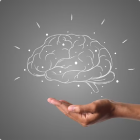Services
What does Arnab Datta, MD treat
What’s Treated
What does Arnab Datta, MD treat:
Arnab Datta, MD treats Depression, Anxiety, ADHD, Bipolar Disorder and various Major Life Changes to name a few conditions (see what’s treated for the full list). That’s how Psychiatry is unique, it’s an integration of one’s psychology, emotions and medicine (if needed). He can also provide daily meditation exercises to improve the psychotherapy experience.
Dr. Datta has received patients who, after seeking various treatment programs and providers, still have not received the behavioral change results they’re seeking. Helping someone with their mental health or behavioral change is not a one size fits all process. Every person, couple and family is different. Even though Dr. Datta is a psychopharmacologist and controlled substance specialist, he has a psychotherapy first mindset. He listens to your story, to your problems and develops an understanding of both your conscious and unconscious mind. He helps you see what you can’t yet see about yourself. He helps you make the decisions that are congruent with who you are as a person.
There’s a saying, “People don’t change.” Dr. Datta doesn’t believe in that. Neuroplasticity and Bioplasticity are real. We must have faith and confidence that we can get better, despite the obstacles. People may not realize the daily dedication and consistency that psychological and emotional change demands, but it’s possible here. Whether it is letting go and learning from trauma, changing bad maladaptive habits or having someone who listens and understands. Dr. Datta is the coach who helps make it possible. (See Addiction, Psychotherapy, Couples Therapy and Meditation pages for Dr. Datta’s full philosophy of treatment).
You don’t have to be mentally ill to see a psychiatrist or therapist. He sees things from your shoes and can help you make a decision based on what is most important to you by providing objective feedback.
What’s Treated
What does Arnab Datta, MD treat:

- Bipolar disorder I
- Hypomania
- Cyclothymic bipolar disorder
- Major depressive disorder
- Depression of manic depressive illness
- Mood swings and mood disorders
- Substance-induced mood disorders
- Constellation of neglect, abandonment and trauma of childhood and adolescence, borderline personality traits and addictions.
- Major depressive disorder
- Clinical depression in adults
- Seasonal affective disorder (SAD)
- Mood swings and mood disorders
- Cultural integration and adaptation
- Grief, loss and bereavement
- Depression of manic depressive illness
- Teen and adolescent depression
- Bipolar I and Bipolar II
- Extreme mood swings from depression to euphoria
- Changes in appetite and sleep patterns
- Substance-induced mania
- Anxiety disorders, PTSD and social phobias
- Delusions or hallucinations
- Differentiation between bipolar disorder and ADHD
- Differentiation between bipolar disorder, schizoaffective disorder and schizophrenia
- Inattentive versus behavioral ADHD, or combination
- Depression, lack of motivation, procrastination
- Stimulant treatment
- Stimulant taper down and reduction to a reasonable dose
- Training of the body and mind to remedy ADHD and not be dependent on stimulants
- Anorexia and malnutrition
- Bulimia, binge eating disorder, and compulsive overeating
- Avoidance/restrictive food intake disorder (ARFID)
- Orthorexia
- Body image issues, body dissatisfaction and distorted body image
- Extreme dieting and obsessive exercise
- Body dysmorphic disorder, plastic surgery related and cosmetic procedure related issues
- Panic attacks
- Obsessive compulsive disorder (OCD)
- Post-traumatic stress disorder (PTSD)
- Social anxiety disorder
- Generalized anxiety disorder
- Benzodiazepine related anxiety disorders
- Drug, medication induced Intoxication versus withdrawal anxiety disorder
https://www.talkspace.com/blog/couples-therapy-techniques/
- Starting a relationship
- Putting your best foot forward and eliminating self-sabotaging habits.
- Dating apps, goals and anxieties related to (for women and men)
- Reflective listening
- Speaker listener technique
- Sandwich method
- Emotion-focused therapy
- Narrative-focused therapy
- Solution-focused therapy
- Gottman institute method
- Integrative individual and couples therapy
- Dr. Datta can be the psychiatrist / therapist for both spouses and the couple’s therapist
- Dr. Datta can be the objective third party referee in a relationship, family, group or team dynamic.
- Understanding and alignment of Interracial, intercultural and intercultural relationships.
- Outpatient detoxifications
- Adderall outpatient taper
- Benzodiazepine outpatient taper
- Dr. Datta can help people taper down or discontinue any prescribed medication or drug
- Dr. Datta is a Controlled substance specialist
- Dr. Datta does look up every patient on the IStop health commerce DEA database before accepting them as a patient
- Suboxone, Bunavail and zubsolve
- Methadone and Oxycodone are not prescribed
- Naltrexone and vivitrol
- Smoking cessation
- Chantix
- Nicotine patch and gum
- How to quit smoking using vaporizers in moderation
- Psychedelic psychotherapy
- I do not prescribe schedule 1 psychedelic medications
- However, I do provide psychotherapy when people seek to interpret their ayahuasca or psilocybin (magic mushrooms) experience.
- Behavioral addictions
- Gambling
- Video games
- Pornography
- Social media
- Sex / love addiction
What’s different about Dr. Datta
Precision in Medications and Psychotherapy: Quite a few of Dr. Datta’s patients haven’t received an accurate diagnosis in the past, additionally, their medications are superfluous and cause side effects; Dr. Datta remedies these issues. Dr. Datta understands the rationale of your particular medication regimen and offers you a regimen that is balanced and fits your personality. Dr. Datta conducts a free discovery phone call with patients before they come in, so both the patient and doctor know whether their philosophy and perspectives regarding treatment are aligned. He begins by understanding every patient’s personality and emotionality and how it intertwines with the medication. Dr. Datta is a General Psychiatrist and Addiction Psychiatrist and he doesn’t “lop you into the you’re an addict category” or “you have this diagnosis and you need to take this medication.” Dr. Datta treats Depression, Anxiety, ADHD, Bipolar Disorder and various Major Life Changes to name a few conditions (see what’s treated for the full list). That’s how Psychiatry is unique, it’s an integration of one’s psychology, emotionality and medicine (if needed). He can also provide daily meditation exercises to improve the psychotherapy process.
Dr. Datta has received patients who, after seeking various treatment programs and providers, still have not received the behavioural change results they’re seeking. Helping someone with their mental health or behavioural change is not a one size fits all process. Every person, couple and family is different. Even though Dr. Datta is a psychopharmacologist and controlled substance specialist, he has a psychotherapy first mindset. He listens to your story, to your problems and develops an understanding of both your conscious and unconscious mind. He helps you see what you can’t yet see about yourself. He helps you make the decisions that are congruent with who you are as a person. There’s a saying, “People don’t change.” Dr. Datta doesn’t believe in that. Neuroplasticity and Bio plasticity is real. We must have faith and confidence that we can get better, despite the obstacles. People may not realize the daily dedication and consistency that psychological and emotional change demands, but it’s possible here. Whether it is letting go and learning from trauma, changing bad maladaptive habits or having someone who listens and understands. Dr. Datta is the coach who helps make it possible. (See Addiction, Psychotherapy, Couples Therapy and Meditation pages for Dr. Datta’s full philosophy of treatment).





